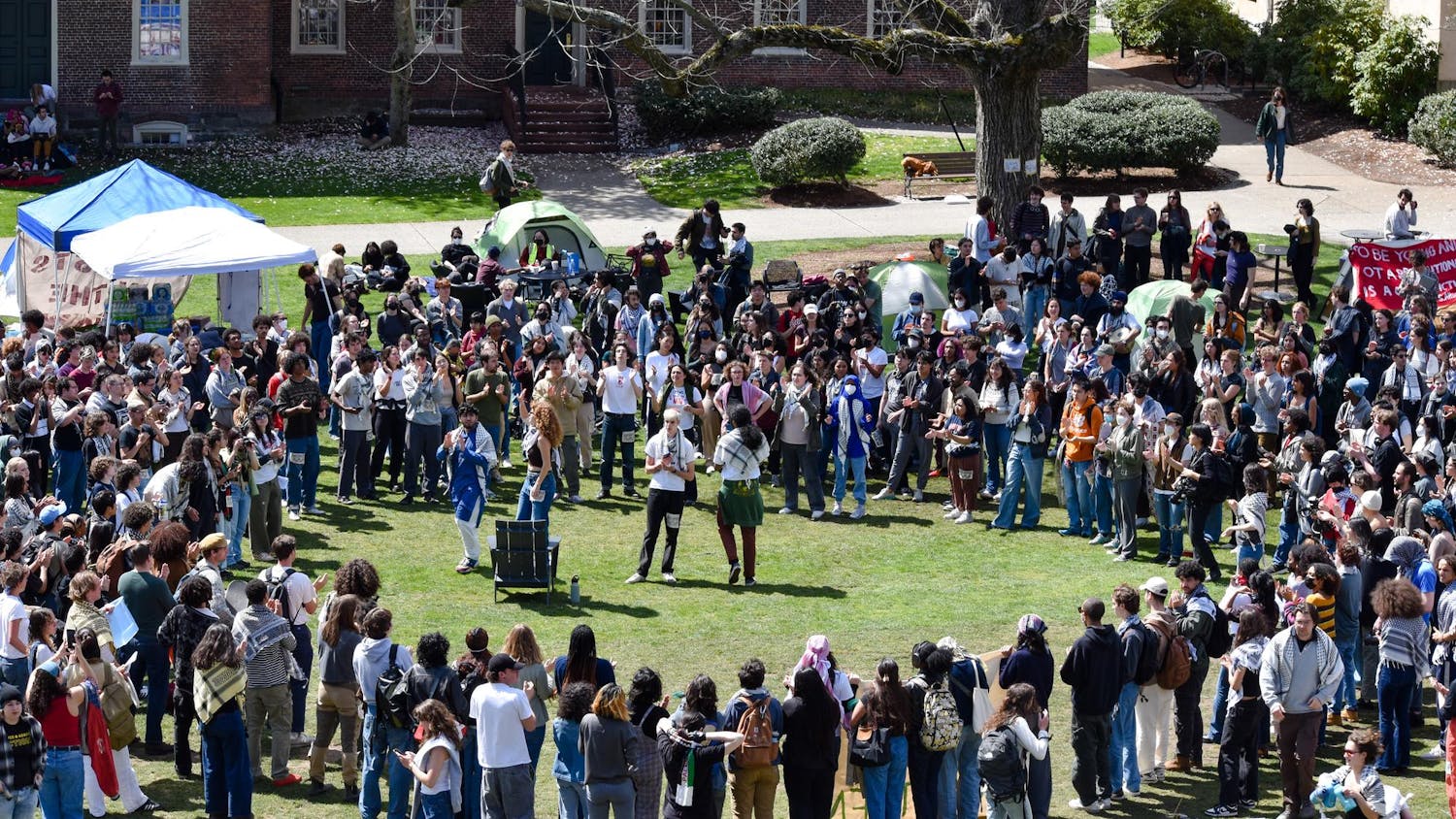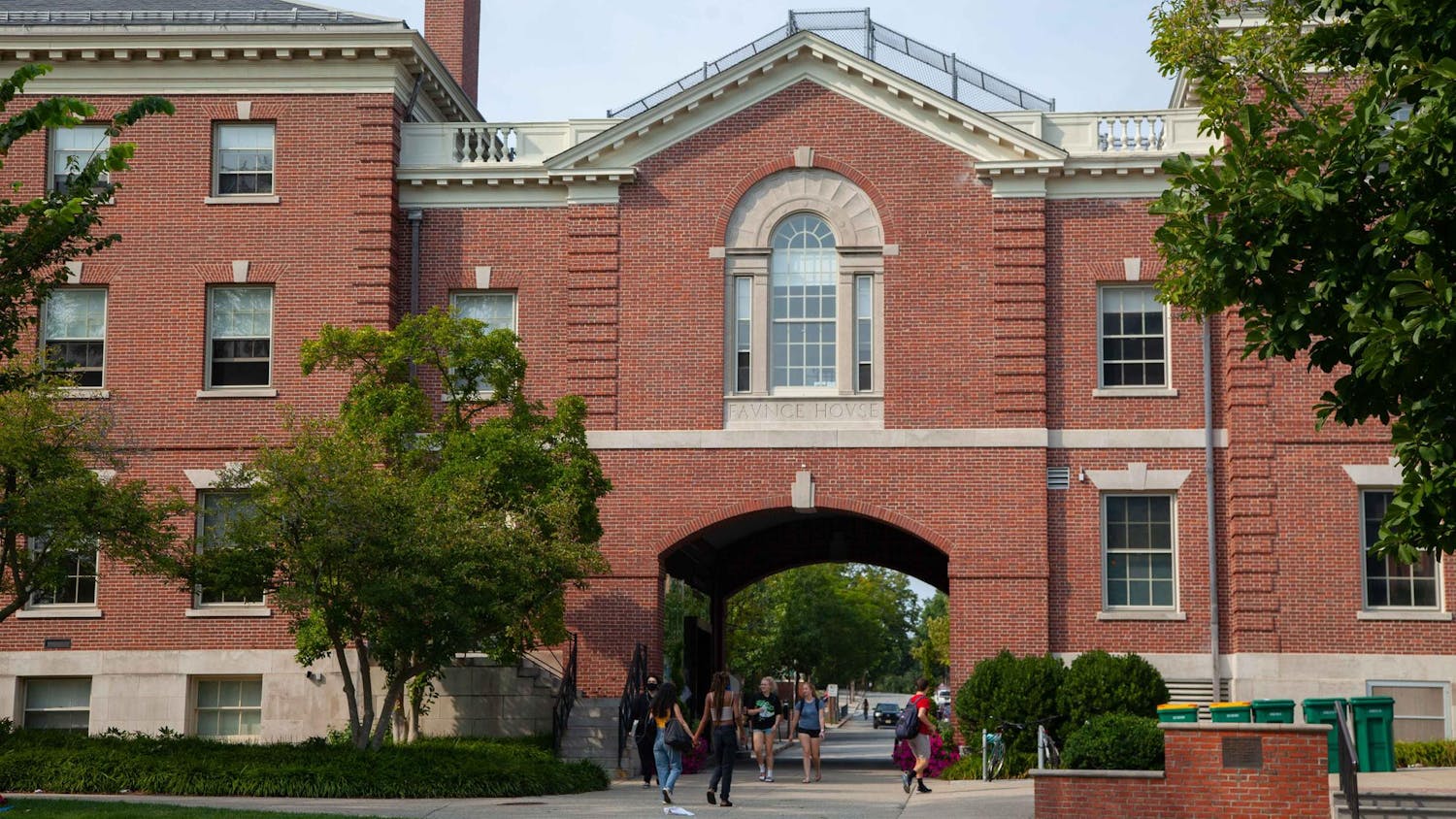Though the $1.61 billion Campaign for Academic Enrichment concluded in December and this May will mark President Ruth Simmons' 10th year in office, Corporation members expect her to stay with the University "for the foreseeable future," said Chancellor Thomas Tisch '76 P'07.
The average tenure for Ivy League presidents falls somewhere around 10 years, according to Stephen Nelson, associate professor of educational leadership at Bridgewater State University and a scholar at Brown's Leadership Alliance. But Tisch said numbers of years are not as important as contextual factors, such as the vigor and enthusiasm the president brings to the position.
"For some presidents, two weeks is too long. For some presidents, 20 years might be too short," he said. "The principle is not one of time — it is one of energy, freshness, vision and perspective."
Selecting a successor
In February 2010, Simmons announced she would remain as president at least through the 2011-12 academic year. Though Simmons has not publicly discussed her plans for subsequent years, Chanceller Emeritus Stephen Robert '62 P'91, who served on the committee that selected her in 2000, said she would ideally announce any intentions to retire about a year before she plans to officially step down. With a year's notice, the Corporation could have sufficient time to find a new president.
Simmons declined to comment on when she plans to step down but wrote in an e-mail to The Herald that she will continue to discuss plans for her succession with the Corporation leadership. A small group within the Corporation is responsible for presidential succession plans, according to Maria Zuber MA'83 PhD'86 P'11, a member of the Corporation's Board of Fellows. Zuber herself is not a member of that group.
"Any outstanding institution always has a succession plan at all levels," Zuber said.
Though Tisch said there were too many "hypothetical characterizations" in discussing what the search process would be like for finding Simmons' successor, he commended the University's precedent of seeking "broad-based" community input in presidential selections. When the University last held a search for a president, candidates were identified and interviewed by two committees — the Corporation search committee and a campus committee composed of faculty members, staff and undergraduate, graduate and medical students. Robert said he found the process useful because the incoming president already had support from several constituencies on campus when she arrived.
‘Your face on a T-shirt'
Nelson, whose research focuses on university presidents, said there are three main factors for determining when presidents will step down — age, success in the eyes of their constituents and how much they enjoy the job. In terms of age, Nelson emphasized health and energy rather than a specific cut-off.
Simmons, who is 65, has a 74 percent approval rating from the student body, according to a poll conducted by The Herald last fall.
Brown students have a remarkable relationship with Simmons in comparison to students at other schools, said Michael Stewart '13. "We go to a school where kids sell T-shirts with just Ruth Simmons on it," he said. "We mean it in a ‘We love you, we want to have your face on a T-shirt' way."
Barrett Hazeltine, professor emeritus of engineering, added that faculty members also approve of Simmons, saying he would be "surprised" if many members of the faculty "really don't like her."
"I've been at Brown 52 years, and this is really the first president where I haven't heard a lot of grumbling," Hazeltine said. "Anything I hear is ‘Gee, we're lucky to have her — she's sensitive and fair.'"
A long tenure
But Hazeltine said though he likes Simmons and it would be "a real loss" if she left the University, he does worry that leaders of educational institutions can stay in positions for too long. Twenty years is "clearly too long," while 15 is "probably stretching it," he said.
Nelson, on the other hand, said his research indicates longer terms can often be better.
"If you've done reasonably successfully, you can say to your campus constituencies, ‘Trust me,' and they trust you, because they know that in analogous previous situations, you have led them well," Nelson said.
Richard Levin, president of Yale, echoed Nelson's statements. Levin, who is currently serving his 18th year as Yale's president, is the longest-serving president in the Association of American Universities. "It takes a long time to make a mark on great institutions like Yale, Harvard and Brown," Levin wrote in an e-mail to The Herald. "Most presidents with a major impact serve 15 years or more."
Levin wrote that he believes Simmons has done an "outstanding" job at the University, and it will benefit from her continued service.
Vartan Gregorian, who served as president from 1989 to 1997, said he finds it hard to generalize the appropriate term length for a university president. Every president, he said, has a goal to accomplish during his or her tenure — some goals simply take longer than others.
But Roger Brown P'13, president of the Berklee College of Music in Boston, warned against staying too long in office. Brown cited the possibility of a generation gap between students and presidents, as well as a constant need for "fresh ideas and new thinking."
‘She loves what she's doing'
Robert, who has been affiliated with the University for over 50 years, said he has never seen growth comparable to that during Simmons' tenure. Robert called Simmons' presidency "extraordinary" and said though she has earned the right to leave, he hopes she stays for a while.
He added that objectives like the Plan for Academic Enrichment can be cited as reasons to stay, but there will "always" be important issues a university has to deal with.
"There's all these reasons you could give why it's not a good time for a president to leave," he said. "But I think that the real reason she is staying is that she's accomplishing a lot, and she loves what she's doing."
Tisch also mentioned Simmons' enthusiasm for the University and academia. "I think she sees the combination of curriculum and community in glorious terms that are worthy of celebration and constant nurturing," he said. "And that is something that has been, and continues to be, an extraordinary gift for Brown."
Though Stewart said he had initially thought Simmons would serve through his undergraduate years, he has lately begun to think "it wouldn't be totally unexpected" if she were to leave.
"She began giving this speech on the Main Green during Parents' Weekend," Stewart said. "And she started talking about how she wanted to spend more time with her grandchildren. And I remember looking over at my father and giving him a look and being like, ‘Oh, geez, here it comes. She's going to announce it.'"
Even though Simmons did not announce any intention to step down, Stewart said that moment sparked the idea in his head that she may leave in the next few years.
"I don't want to see her go, but I understand," he said. "It's her decision."
Future plans
In 2002, Simmons introduced the Plan for Academic Enrichment, a sweeping agenda for achieving "excellence in research, education and public leadership" at the University. Though many of its goals have been reached, the plan outlines what students should expect from her office in coming years, Simmons wrote in her e-mail.
The Campaign for Academic Enrichment, a fundraising initiative aligned with the plan, concluded Dec. 31 after raising $1.61 billion for the University — $200 million more than its original goal. The University is now planning the next steps for fundraising.
Looking fo
rward, the plan specifically targets undergraduate issues such as independent learning opportunities, financial aid, housing and resources for curricular development, particularly in multidisciplinary and scientific concentrations.
To increase the University's global reach, the plan itself recommends bringing in more international scholars, supporting research on international issues, expanding existing programs and resources and hosting dialogues among "the world's leading thinkers."
The plan also calls for strengthening academic departments by adding to postdoctoral programs, attracting funding for research-oriented departments and increasing resources for departments based on their ability to "achieve academic excellence."
But Simmons wrote that "many things" will be added to the plan, such as increased emphasis on housing, in light of "new needs and opportunities" for the University.




